Sessions / Zoom 11


Evaluation of Duolingo to Promote Language Acquisition #1308
Smartphone use in the English language classroom has been increasing in popularity in recent years, and yet research into the effectiveness and experience of Mobile-Assisted Language Learning (MALL) in a Japanese University context is still inadequate. Due to the scarcity of research in this area, the efficacy of the language-learning platform Duolingo, which is currently the leading language-learning mobile application, was evaluated. Duolingo is a free, comprehensive, four-skill, language-learning website and application which offers courses in 38 languages and is based on a gamification model.
This presentation will share the results of a small-scale independent study designed to research the effectiveness and the experience of using the mobile-learning application ‘Duolingo’ as a learning aid in a Japanese University context. The impact of the regular use of this application on student language acquisition, through pre- and post-tests done using Duolingo’s own English Test system was examined, and student attitudes were recorded through surveys. The quantitative data regarding language gains was inconclusive, but the qualitative data showed that the participants were generally amenable and motivated by studying in this manner.

Listen & Produce: Using Podcasts for Conversation #1329
This presentation will share the effects of a teaching method focusing on podcasts as the prominent teaching tool. It will explore how listening to ESL podcasts, creating conversations using their phrases, and then producing their own podcasts can enhance students’ vocabulary retention, confidence in speaking, and use of new phrases. First, studies on previous applications of podcasting in language acquisition and the effects of such uses on the development of students’ skills are explored. The presenter will then detail the way podcasts are used in each lesson to maximize retention of the vocabulary phrases and their use by providing a sample of the flow of each lesson. There will be a demonstration of how to use the mobile podcasting app Anchor.fm to allow collaboration during remote teaching. In addition, participants will hear a sample of an episode from the student-produced weekly podcast, which is based on conversation topics presented through a teacher-selected ESL podcast episode from ESLPOD.com. In each student-produced episode, students summarize the contents of that week’s podcast and then personalize the material by sharing their opinions or experiences pertaining to the situations presented in each episode. Subsequently, the affective measure of confidence and the increased use of new vocabulary phrases are investigated by analyzing student podcast content and sharing questionnaire results. Participants are members of an advanced conversation & listening class as part of a 14-week academic Continuing Education IEP (Intensive English Program) at a university in the United States.
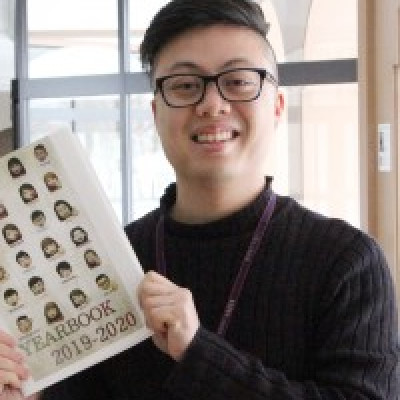
Tools and Techniques for the Zoom Teacher #1370
This past year has seen a radical change in the way we teach in the classroom. By now, many teachers have accommodated themselves with multiple online video conferencing tools, and Zoom is no exception. This workshop will look at additional features and options Zoom can provide that may be overlooked, including attendance, keyboard shortcuts, video translation captioning, dual/triple monitor effective usages, maximizing power resources for entry-level PCs/laptops, and general accessibility. The presenter will show the settings in real-time so that participants can follow along and implement the settings as they see fit. With the premise of saving time, simple to use, and easy to remember, the presenter hopes to share tools that can tailor to all, from those that are still grappling with the basics to the tech-guru that is looking to find new ways to provide a better experience for a class. Q&A is highly encouraged and welcomed.
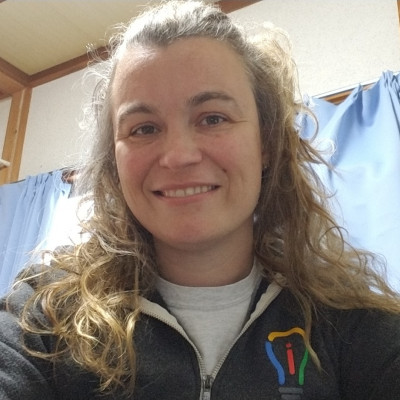



JALTCALL Forum #1318
The theme of our JALTCALL conference in June 2021 is “Remote Teaching and Beyond”, so today we will be talking about different aspects of technology in the classroom that helped us during COVID and we think we will use into the future as well. We will try to convey how we used these technologies and ideas and how everyone can use these skills in their own practices into the future.
Our speakers today are, in speaking order:
> Julia Christmas and Dr. Reiko Ishii - Using Online International Student Exchange to Boost Mobility During and Post-COVID-19
> John Maurice Gayed - AIKAKU and AI in education
> Oliver Rose - Using the LingoLab web apps for online phrase-level practice
During the forum today, we will each be speaking for around 20 minutes and then we will have time for questions. Below are brief descriptions of our topics. If you have questions for us during the talks, please type in the shared Google Doc so that we can answer your questions during Q&A time!
Julia Christmas and Dr. Reiko Ishii - Using Online International Student Exchange to Boost Mobility During and Post-COVID-19
Description: International student exchange is both beneficial and desirable. Various forms of long or short-term exchange have become a staple of universities and many high schools in Japan. Prior to the interruptions caused by the pandemic, exchange possibilities were often taken for granted and individual barriers, financial or otherwise were often not a pressing consideration. The presentation will discuss the issue of inequality in mobility that has been a longstanding issue but can now be more easily addressed by creating mingling and exchange opportunities online. The presenters will offer examples of student exchange that took place between their school and students at partner schools across borders despite travel restrictions. In addition, the presenters will argue that online student exchange programs give stakeholders a way to level the playing field for students who lack mobility in the post-COVID-19 era and should be encouraged even after regular on-the-ground exchanges become possible again.
John Maurice Gayed - AIKAKU and AI in education
Description: This presentation will introduce the development of an AI-based writing application with potential use for English as a foreign/second language (EFL/ESL) classrooms. The researcher is developing the tool to assist English language learners (ELLs) overcome the cognitive barriers they face when they attempt to produce written text in English. Research into the development and use of these tools has been lacking. While there has been much research and discussion on Automated Writing Evaluation (AWE) technologies or older technologies such as spell check and grammar check, there are few studies utilizing AI in education. This presentation will cover the development of the application, its basic framework and potential issues with using artificial intelligence technologies in the classroom.
Oliver Rose - Using the LingoLab web apps for online phrase-level practice
Description: The free LingoLab sentence-building activity will be introduced, showing modes for self-study, testing & a live quiz game. This activity format has learners respond to questions (in text, audio &/or picture form) by constructing phrases or sentences. Their progress can be tracked and shared with teachers, who can also make custom sets for use in all modes.



Towards a Better Student Experience in ERT #1286
This follow-up study, using data from 529 student questionnaire responses as well as student interviews, seeks to determine if changes to the method of teaching based on student feedback from the previous semester (Raichura et al., 2020) resulted in better student experiences of Emergency Remote Teaching (ERT) at a large private Japanese university. Students evaluated modes of teaching (on-demand, live-streamed, and mixed), various online tools (learning management system [LMS], teacher-created videos, Google Forms, Flipgrid, vocabulary software, Edmodo, and Zoom) and overall satisfaction. This study begins with an explanation of why ERT lessons were continued in the fall semester of AY2020, and the insights gained from the spring semester. Results of the questionnaire showed that students overwhelmingly approved of a mixed style of lessons (both on demand and livestream), favoured the use of the university LMS, and enjoyed the social aspects of livestream lessons. However, despite increased efforts by teachers to instruct students on the various platforms used, students still found the plethora of tools to be a major disadvantage. This presentation would be useful for teachers who aim to incorporate online tools into their lessons either via remote teaching, face-to-face or a hybrid format.
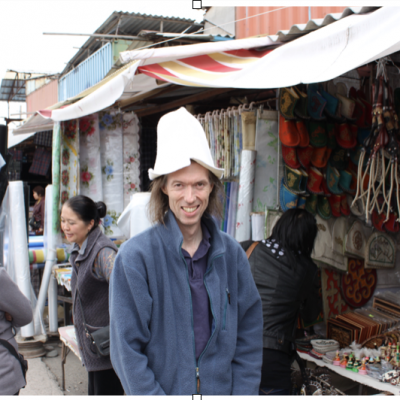
Teachers Helping Teachers Kyrgyzstan Seminar #1290
Teachers Helping Teachers (THT) works to help fellow educators and students in and around Asia. To accomplish this, THT provides teacher-training workshops that exhibit practical and teacher-friendly approaches to language education that are informed by current research in the field. This poster describes the activities of THT in Kyrgyzstan, Central Asia, where THT offers a series of workshops every September that are tailored to the needs of instructors in the Kyrgyz context. Topics addressed by the presenter include the state of teaching in Kyrgyzstan, our partnership with the English Teachers’ Association (FORUM), our university host institutions throughout the country, suggestions for prospective participants, and what to expect from taking part. The presenter hopes that the information in the poster will inspire more Japan-based language instructors and researchers to involve themselves in opportunities to develop their careers through working with other educators in Asia.


Humor competence in intercultural communication #1301
Humor can break down cultural barriers, but there are also vast differences regarding how humor is used in different cultures. These differences often complicate intercultural communication and can lead to embarrassment or isolation for language learners (Bell, 2011; Lems, 2013). A growing number of researchers thus advocate the inclusion of humor competency training in foreign language education (Hodson, 2014; Kim & Lantolf, 2016; Wulf, 2010). Humor competency training refers to training learners to better recognize, comprehend, and respond to humor in the context of intercultural communication (Bell & Pomerantz, 2016).
How can we include humor competency training as a part of English language classes? Humor competency training does not involve giving dry lectures on the humor norms of different cultures, but rather designing engaging and interactive communicative activities. The presenters will provide an overview of humor competency training units they have implemented in their university English language courses. These units include a focus on two modes of humor that are ubiquitous in many English-speaking cultures, verbal irony and satirical news. The humor training covers both interpersonal and online intercultural communication. A summary of class activities, recommended resources, and student reactions will be shared.
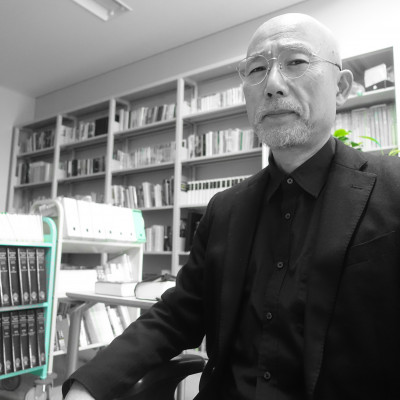
TOEIC Bridge and ER in remote classes #1314
The purpose of this presentation is to show the effect of ER on English proficiency in remote classes. First, the presenter will show how English proficiency influenced the result of ER. Then the effect of ER on English proficiency will be discussed. The participants in the study were 57 Japanese university-level engineering students who studied remotely in one semester and face-to-face in another semester. The study employed a method of dividing samples into three groups: low (less than 60,000words/yr), middle (60,000-150,000), and high (more than 150,000) amount of reading. The presenter examined the relationships and interactions of the two variables (ER and proficiency test scores) over a one-year treatment, using ANOVA. The number of words students read was counted with MReader, and TOEIC Bridge tests as pre-test/post-test were administered. The results of a one-way ANOVA revealed significant differences. In the result of the pretest, the low group and the middle group were significantly different. This result suggests that initial English proficiency was the cause of the difference in the amount of reading. On the other hand, ANOVA revealed no differences in the result of the posttest. It is suggested that the gap between the middle group and the low group disappeared and that ER was effective for the improvement of English proficiency.

Multilingualism and Intercultural Competence #1325
“In the modern world, monolingualism is not a strength but a handicap” (Crystal, 2006). While foreign language education may be able to encourage and support the development of sequential multilingualism in the still mainly monolingual Japanese society (Harding-Esch & Riley, 2003; Wang, 2018), implementation of linguistic competence without intercultural competence (IC) is not enough to guarantee effective use of the new language/s. IC is the ability to communicate effectively and appropriately in intercultural situations through the application of one’s intercultural skills, attitudes, and knowledge (Deardorff, 2006). This lecture-style presentation will first briefly explain multilingualism and IC respectively, and how the two are connected. Finally, it will focus on how IC can be practically integrated and assessed in EFL classrooms. Participants will hopefully be able to understand the importance of IC and gain ideas on how to practically incorporate it in their language classrooms.


Teaching Entrepreneurship Through Experiential Learning #1326
The rate of women entrepreneurs in Japan is abysmally low compared to other nations. In fact, Japan ranks last among OECD countries, and data indicates that a mere 17% of Japanese women declared to have knowledge about starting or growing their own business. The current situation indicates the need for learning materials that not only introduce the topic of entrepreneurship to all students but also showcase female models of business success. To this end, the presenters have created a series of experiential learning materials centered around a strong female character, Mirai Takahashi, who is in the process of launching a business start-up with the guidance of her mentor, Catherine Sakamoto. Through Takahashi’s successes and failures, students experience the risks and rewards of starting their own company. The purpose of this session is to highlight how the presenters are currently using these materials and to introduce a series of academic studies regarding how material design can influence perceptions of entrepreneurship, gender equality, and digital transformation in business. The presenters will describe their current efforts to gather both quantitative and qualitative data for these studies and share their initial results. Active participation from audience members is strongly encouraged.

Japanese EFL Learners' Perceptions of Their Own Bilingualism #1327
Despite recent works that have expanded the notion of emergent bilingualism to include FL learners in their own right (e.g., Turnbull, 2018), and calls for plurilingualism and multilingualism to be accepted as a goal in FL education, the concept has yet to be widely acknowledged, particularly by the very learners who fall within this category. Through use of a questionnaire, this presentation examines the personal opinions of 223 university-level Japanese intermediate EFL students regarding the definition and process of becoming bilingual. Quantitative and qualitative analysis of emerging themes in the data show that most of these emergent bilinguals do not view themselves in such light, and consider the notion of bilingualism to be an out-of-reach goal at their current level. The presenter suggests the need to educate FL learners of their bilingual status so they may dismiss the idea of attaining native-like competence and instead embrace their unique set of bilingual languaging strategies to make meaning, to express themselves, and to learn.

The Need for Story-Centric Language Teaching #1335
Language teachers often struggle to inspire student interest. To solve this problem, we present a “story frame” for engaging learners. More than just using stories, the story frame helps us plan lessons and guide learning. For instance, we can use the story frame “character + conflict + attempted extrication” (Gottschall, 2012) to guide discussion. Students read about a man (character) who gets sick (conflict) from eating fast food daily. Students suggest five things he can do to live a healthier life (attempted extrication). Even with grammar lessons, we can add story spice. Often, students do dull dialogs. But with a story frame, teachers can give students example sentences and images in a story nutshell. For the present continuous, students see a surfer (character). He is surfing a dangerous wave (conflict). The teacher asks, “What’s he doing?” Answer: “He’s surfing.” In the next picture, the surfer is about to fall. The teacher asks, “What’s he doing?” Answer: “He’s falling.” While these ideas are not new, we provide a story frame for teachers to use in every aspect of teaching because story works as the most powerful form of communication, and enhances every form of linguistic interaction.
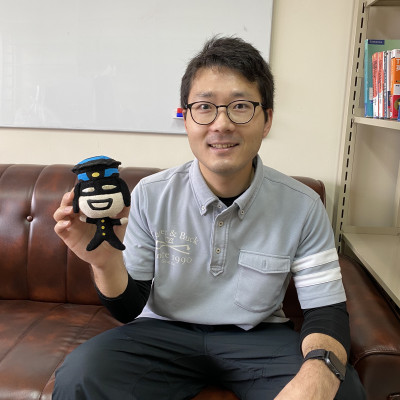

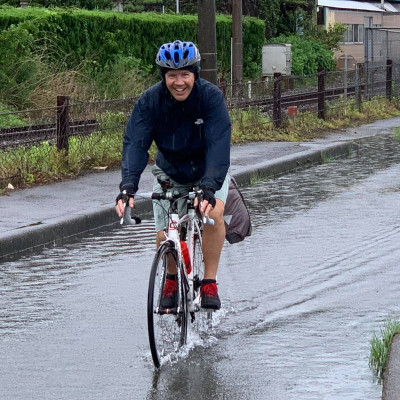
Reconceptualizing Accessible Language Learning #1338
Creating equal educational opportunities for learners with disabilities was initiated by The Act for Eliminating Discrimination against Persons with Disabilities in 2016. JASSO (2020) estimates that the percentage of students with disabilities in post-secondary education has increased from 0.44% to 1.17% since 2014. Those students, however, remain under-supported in language education. Tonooka (2015) estimates that only 28% of university language classes offer support for students with disabilities in Japan. The Act of 2016 places responsibility of providing reasonable accommodation for learners with special needs on language teachers by merging their classes with those of non-disabled learners. This change has brought on a “destabilization in the practices of the typical teacher” (Goodley, 2014, p. 104) on one hand, and a shift in the notion of disability from impairment towards inaccessibility to learning resources on the other. This poster session will highlight various learning differences and a diversity of learner needs including communicative, physiological, and psychological differences in language classes. Presenters will share their insights into reconceptualizing accessibility in language learning. The goal is to facilitate discussions on raising awareness of how teachers can best support learners with special needs. Participants are welcome to share their experiences concerning accessibility in language learning.

Enhancing our Students’ Global Voices #1341
To participate in the global conversation on combating climate change, Japanese university students need to be able to utilize their English language skills across a range of contexts. However, for most, their experience using English is typically limited to the classroom. Therefore, this study seeks to enhance the voice of Japanese university students by first analyzing a series of recent speeches by Swedish climate-change activist Greta Thunberg, transcribed in her book, “No one is too small to make a difference”. Being of a similar age and also speaking in a second language, Thunberg is an ideal public speaker for students to model. This research study consisted of two phases. Initially, a structural analysis of her speeches was conducted, exploring the established organizational frameworks front-loading and back-loading, as well as common message framing techniques attribute framing, goal framing, and loss/gain framing. Secondly, an examination of the persuasive discursive techniques used in her speeches was conducted, focusing on established rhetorical devices such as tripling, bookending, doubling, contrasting, and negative questions. This presentation will document the wide range of techniques (organizational and rhetorical) used by Thunberg and discuss how they can be used by Japanese university students seeking to move beyond generic English language classroom presentations.

Video Letter Exchange to Oral Development #1343
Engaging students in online exchange has numerous positive effects; one is to keep students connected to the international community (Blake, 2000). This presentation focuses on how CEFR A1- to A2-level English learners engage in authentic communication with native English speakers through an online application during the pandemic as part of a two-month project. The purpose of this presentation is to share the project’s classroom practice and the effectiveness of its online communication exchange for speaking development and cultural understanding. In this project, university students learning English in Japan exchanged a video with students learning Japanese in the US. The main language used in the video was English. However, the topics included intercultural aspects, such as sharing stories about their favorite heroes. At the end of the project, the post-test speaking test showed increased gains in English learners’ fluency, accuracy, complexity, and lexical diversity, as the English learners may have picked up native terms from their video exchange partners. This presentation also provides feedback and comments from students from both countries and highlights issues that may arise during the project to assist future project organizers who are interested in conducting an international video exchange project.
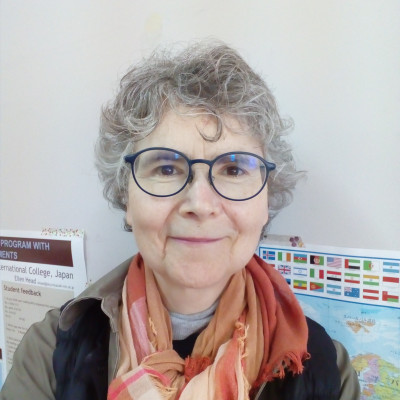
#BLM in Fragile White Classroom #1362
How can stories, delivered through movies or words attract students and support the development of a more nuanced understanding of the world? This poster presentation focuses on a personal “critical incident” between a white British teacher and Japanese students. The presenter describes how her personal reading encounters with YA authors like Angie Thomas, Alex Wheatle and Brittney Morris, led to a new perspective on racism. With this new perspective she noticed how the Japanese students’ interpretations of the information in their old text book sounded as if they were expressing a racist point of view, even though the textbook author’s intention was to highlight social injustice in the USA. Was that due to their low language level or to stereotypical thinking about race, or both? Disentangling the linguistic aspects from the attitudinal aspect was difficult and uncomfortable. However, as JBP Gerald (2020) suggests “uncomfortable conversations” should not always be avoided. Hearing JBP Gerald’s lecture at Kyoto JALT in 2020 encouraged this teacher to show part of the movie “The Hate You Give” to the class. Discussing the ethical issues raised by the movie produced deeper reflections from students. It is hoped that after attending this presentation fellow educators will be inspired to read and teach more literature and movies by Black authors and directors.

オンライン日本語コースと地域コミュニティをつなぐ丹波篠山プロジェクト #1366
本発表は、春学期に北米の大学のオンライン日本語コースで行った地域交流と理解をテーマにしたPBLの実践報告をする。コースがオンラインになった状況を活かし、兵庫県丹波篠山地域とコース受講者がつながることを目的にしたPBLをデザインした。具体的には、地域理解のテーマに沿って、受講者は地域の人々のレクチャーを受け、地域について各自が興味を持ったことを調べる。そして、調べたことを地域の人に向けて発表して交流を行う。このPBLの成果としてどのように受講者が発表を通じて地域へ貢献しつながることができたのかを検証し、今後の課題と改善案を提示する。

Don't Say That, Say This! #1368
While plurilingual/multilingual speakers enrich their conversations by drawing from various languages, challenges abound. Two common obstacles plurilingual/multilingual speakers in Japan face is the use of Wasei Eigo or “English-based terms created in Japan,” (Gollin, 2013). While these words may “sound like English,” they often have different meanings from the words from which they were derived or may not even exist in the English language. Another pitfall concerns the appropriateness of words or phrases that may be acceptable in one culture but not in another. This presentation will offer a list of thirty Wasei Eigo terms encountered both in and out of the classroom over the past two years as part of a research project. While no means a comprehensive list, the terms shared will likely increase a teacher’s awareness of Wasei Eigo-based words and phrases in the ESL classroom. Wasei-Eigo based activities and materials such as an illustrated version of “Concentration” and Wasei-Eigo journals will be introduced and shared.


The Duolingo English Test: Successes and Struggles #1252
The Duolingo English Test (D.E.T.) is an online, on-demand English proficiency test. This test measures the language ability of test-takers across the four skills of reading, listening, writing and speaking, in a blended manner, where all skills are assessed in a single test. This test is typically much shorter than other proficiency tests and it can be done in the examinees’ own homes using their own computers. The adaptive nature of this test means it adjusts its questions based on the preceding (correct or incorrect) answers enabling it to measure competency rapidly and accurately.
Given the current Coronavirus pandemic, taking language proficiency examinations at test-centers is often not a viable option. Therefore, the D.E.T. may appear to be an affordable, convenient alternative to more traditional tests. However, despite its apparent advantages, it is not without its complications, so it should not be considered a panacea to the deficiencies of conventional testing.
This presentation will introduce teacher and student experiences of the D.E.T. based on information gleaned from questionnaires and interviews. It will elucidate the advantages and disadvantages of the test and also propose best practice guidelines for others wishing to employ this test in their own contexts.



Collaborative Learning in Higher Education in Japan: Toward an Intercollegiate Program #1254
Thanks to globalization, many university students living in regional areas in Japan as well as in the Tokyo metropolitan area have opportunities to communicate with people from other countries using English as a Lingua Franca (ELF). However, international tourist guidebooks usually do not cover such regional areas in detail, so students do not know how to describe local landmarks and cultures in English. This research focused on cooperative learning among around 50 students from three universities in Hyogo, Fukuoka, and Okinawa in an intercollege email exchange in English. The topics ranged from self-introduction to local landmarks, cuisines, and festivals in their hometowns. This cooperative learning project was designed to maximize students' independent learning while teachers monitored their activities. Throughout the interactive lessons, they learned about regional cultures of their own and others in Japan, exchanging opinions with students from other universities, before and after which they completed a questionnaire. The results reveal how cooperative learning influenced their attitude toward language learning and motivated students to express themselves through writing and speaking using ELF. This presentation will show how teachers facilitated the activities and their future plans.
Task-based Learning from the Learners’ Perspective #1256
Task-based Instruction (TBI) may be one of the most popular approaches used today for developing communicative competence in learners. Despite its popularity and pedagogical advantages, critics often question its socio-cultural suitability with learners in Asian contexts, such as Japan. Much of the discussion, however, seems to have centred on the views of theorists and teachers, often failing to incorporate evidence-based learners’ perspectives into the discussion.
This presentation reports the findings of an action research project, which investigated learner perceptions of Task-based Instruction (TBI), with the primary aim to examine its socio-cultural appropriateness in the Japanese EFL context. The study employed a hybrid form of task-based and textbook-focused instruction in English classes at the tertiary level. An online survey was administered to collect student feedback, which was examined qualitatively using thematic analysis. Results will be presented in both textual and graphical form and pedagogical implications drawn from this study will be discussed.


Academic Vocabulary Acquisition: EFL-ESL Variations #1266
Academic Vocabulary Acquisition (AVA) represents a major concern in ESL and EFL contexts (Cox, 2013; Nation, 2012). However, a gap in AVA research between and within English as Second Language (ESL) and English as Foreign Language (EFL) university cohorts still exists. Thus, this pilot study examines variances in academic vocabulary acquisition utilizing Stoeckel and Bennett’s (2015) New Academic Word List (NAWL). During the Spring 2019 semester, the researchers administered Stoeckel and Bennett’s (2015) New Academic Word List Test (NAWLT) as pre and posttest to evaluate AVA variations amongst ELLs at a national university in Hyogo Prefecture, Japan (n= 261) and an intensive English language program at a state university in Nevada, USA (n= 53). Results highlighted statistically significant differences (p < .05) from pre to posttest between and within ESL and EFL cohorts in motivation, length of self-study, between different modality (e.g. reading versus speaking/listening), English usage outside of the classroom, and future career goals. This study suggests concrete pedagogical implications for EFL/ESL practitioners and researchers focusing on academic vocabulary acquisition.


Interaction and Anxiety in the EFL Classroom #1270
Interaction in the foreign language classroom can present learners with socially ambiguous situations, often compelling them to work with unfamiliar classmates. Such an environment may produce unsettling, or even anxiety-provoking experiences. To date, the primary focus of research on anxiety in the EFL context has been on the impact of foreign language anxiety. However, as interaction-centered approaches gain greater prominence, attention should be given to the role that social anxiety plays in student attitudes towards language learning. This study adopted a mixed-methods approach to examine the impact of an interaction-focused, oral communication curriculum on first-year university students’ perceptions of social anxiety. Analysis of pre- and post-test survey data (n = 385) revealed that, contrary to expectations of increased anxiety, learners experienced a significant reduction in feelings of unease over the course of a 15-week term. Qualitative data indicated multiple factors that helped mediate feelings of anxiousness, including affordances provided by the curriculum, improved interpersonal relationships, and transformations in the learners themselves. The results suggest that repeated interaction between learners which is focused on meaningful language use and low-risk self-disclosure can help to build social bonds that ease learners’ feelings of social anxiety.

Developing a Hands-On STEM English Course #1274
In recent years, the importance of STEM education has been gaining increased attention. To thrive in the new technology-driven society, tomorrow’s graduates require excellent technical capabilities and well-refined soft skills. In Japan, STEM students face the additional task of improving their L2 competency. This poster will outline the development, implementation, and participants' impressions of a 15-week STEM English course for non-English major, Japanese university students. The course was developed to allow students to apply STEM content knowledge to improve communication skills, team-work, and higher-order thinking skills. The course covered five units, with each unit requiring two to three weeks to complete. The units included i) STEM Fundamentals, ii) The Scientific Method, iii) The Bernoulli Principle, iv) Parabolic Motion and v) Global Water Resources. The pattern for each unit was as follows: Lesson 1 - the main content and principles of the topic were introduced; Lesson 2 - students were tasked with planning and completing a simple hands-on experiment related to the main topic; and Lesson 3 - students reported their experiment findings to their peers through oral presentations.


JALT's Got Talent #1614
Please come here and start practicing and get an early start if you want.

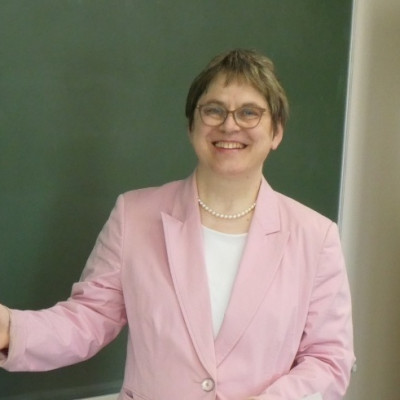


JALT's Got Talent Showcase and Networking Social #1375
*Doors open at 1900 if you want to come and practice your talent!
All you can eat and drink social for all attendees. Please come and share your talent and hobbies with us. We hope to have a series of special presentations to break the ice and then open up breakout rooms to continue networking and socializing. This will also be a great way to welcome new members to our organization and show them that we too are human! So please come, laugh, and enjoy the evening with your PanSIG family.

“Are Teachers Just Content Creators now?”: CALL in the Age of Social Media #1273
During 2020 portals to online coursework existed alongside portals to social media, which offered the potential for teachers and learners to communicate around and beyond the digital classroom. In addition to conventional communication skills, “online” communication skills suddenly seemed essential to learn and to teach. This presentation will share research on how discourse and relationships change when taking place almost entirely online. Focal points include: Duffy’s (2017) investigation into how “aspirational laborers” (YouTubers, influencers, etc.) seek to generate para-social relationships with their viewers; Vitak’s (2012) explanation of distinct audiences combining into “a singular group” under “context collapse”; and Bueno’s framework for an “attention economy” (2016), which identifies “attention” as the sought-after resource driving corporate innovations in social media interface design. These theories will be explored within the context of a communication course adapted in 2020 to be taught almost entirely online. The goal of the presentation is to share theories from outside the field of TESOL that might constructively contribute to conversations about how best to teach communication skills during an era in which social media has become predominant in our everyday lives.


Efficient writing & editing with machine learning #1277
Machine learning has evolved to a point that it can aid the efficacy and efficiency of the writing process for learners and educators. Take a first step toward using incorporating a more sustainable practice for composition and editing techniques through the use of a state-of-the-art writing/editing platform. The basic skills shared during this workshop can allow educators and learners to add a level of simplicity, efficiency, and consistency to their writing process, whereby making it less tedious and more productive.

Adapting Oral Communication Activities post COVID-19 Using Moodle Chat Rooms #1292
What is to be done when Covid-19 measures prevent students from engaging in oral communication activities in class? In this presentation I will explain how an oral conversation warm-up activity routinely used in my classes pre-Covid-19 was adapted to use through Moodle’s live messaging chat room resource. The warm-up activity is a 5–10-minute, low pressure, free-conversation activity, coined Chit Chat. Before Covid-19 restrictions, the activity was conducted in pairs of students, face-to-face. In response to the change to classroom protocols that restricted student interaction at the beginning of 2020, this activity was moved online and realized through Moodle's chat room. At the end of the semester a survey was carried out to assess student perceptions of the warm-up activity. Results were encouraging based on 5-point Likert scale items, and open-ended responses were also positive. These points will be expanded upon in the presentation, and the presenter will also provide their thoughts on the experience of using live messaging chat rooms in class.

ClassDojo Implementation for the University Setting #1371
ClassDojo is an application used for systematic reinforcement of desired behavior through rewarding and punishing students via a point system or as some refer to as the “token economy”. The presenter will relate his experiences on how the application has helped him with classroom management and improve overall behavior in class as it relates to teamwork, motivation, and participation. Although mostly used in the elementary setting, this presentation will show that ClassDojo can be utilized successfully in a university or young adult environment. The presenter will provide his own suggested point redeem system using ClassDojo along with the procedures in implementing this system in class.

Develop confidence through solo extensive speaking #1293
Online conversation practice during emergency remote teaching was problematic due to concerns over mobile data use. This led to a pivot from pair work to solo extensive speaking. Using Google Classroom, students submitted video recordings of themselves speaking for two minutes. This pushed students beyond the one word or one sentence responses they usually produced in class. The videos were private, created a safe space for practice, and the opportunity to re-record enabled students to produce error-free speech that they were proud of. Their speech could be reviewed later, both for mistakes and to check improvement throughout the semester. This practice developed speaking confidence while pair work conversation can often produce frustration and embarrassment. This kind of practice should be done before or in parallel with pair work conversation practice.